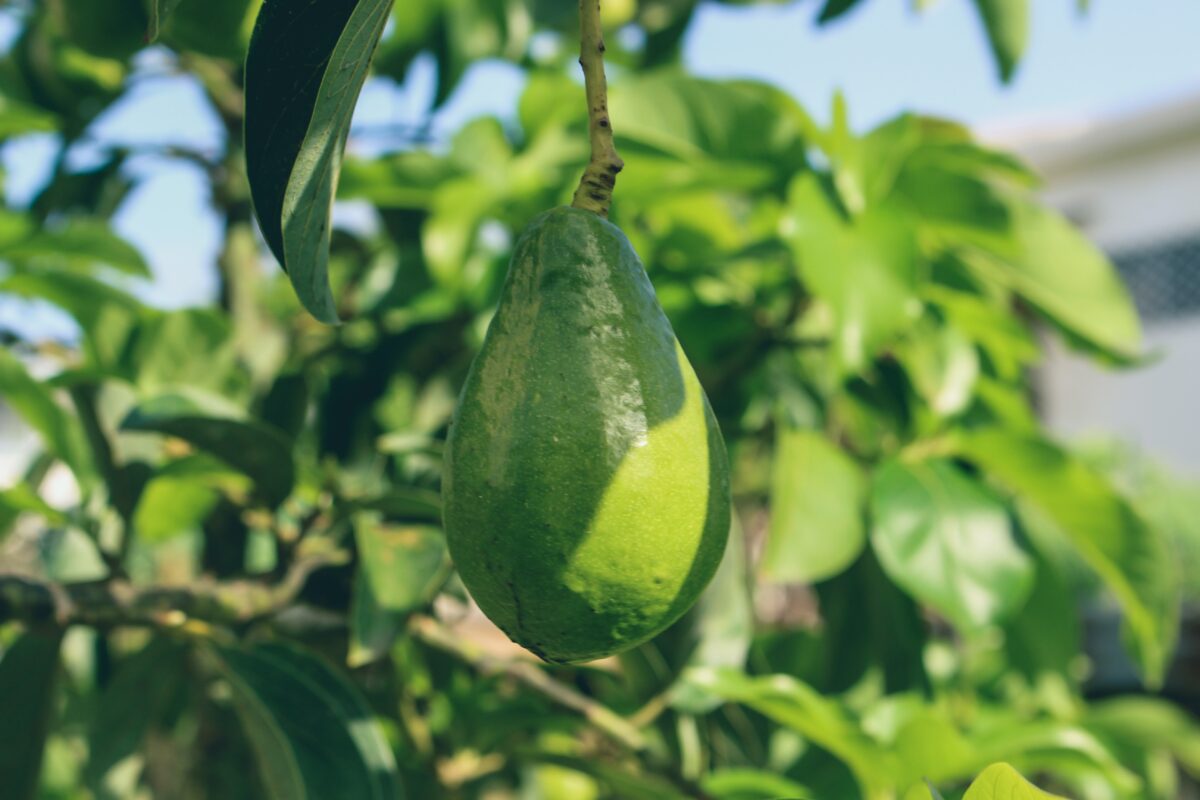Buying in-season fruits and vegetables is accessible through farmers markets, local gardens, and small grocers. However, buying out-of-season produce has increased with advancements in technology and improving the way food is grown, transported, and distributed. Fertilizers, pesticides, and unnatural growing patterns allow for food items to be purchased at any time of the year. This can not only be unhealthy for the human body, but for the environment.
A produce item notorious for its unnatural year-round growth is the avocado. Americans bought $2.6 billion worth of avocados in 2020, an increase of over 50% since 2014. Globally, 11 billion pounds of avocados are distributed worldwide. This impressive statistic isn’t meant to congratulate the avocado-growing community or boast about the tastiness of the fruit. It’s a warning of the exponential growth the product has undertaken, and it foreshadows the environmental tragedy that could follow.
The Hass Avocado Board has made strategic efforts to market the avocado as a super fruit. It is healthy, vegan, and works with every meal, at any time of the day. Before 1997, the US didn’t have easy access to avocados. They were cultivated primarily in California and Florida because of a ban on imports from Mexico. The borer worm, which are tunneling larvae that were infesting avocado fruits in Mexico, were feared by American consumers. An 83-year-long ban was instituted to protect against the potential spread of borer worms in the US. This ban was overturned after years of scientific research deemed the fruits safe for importation and in an effort to make avocados more affordable. From here, a craze began.
As popularity increased, so did demand. As a result, diverse, natural forest lands in Mexico have been chopped down and turned into farms for avocado production. Around 17,000 acres of forest were removed in 2016 alone for avocado farming. This number increased to 36,000 acres by 2021––a change of 19,000 acres in only 5 years. Particularly at risk is the páramo in Colombia, a tropical ecosystem that thrives in the South American Andes Mountains. 800 avocado trees were removed from the páramo ecosystem after they began affecting the growth and reproduction of Colombia’s national tree, the wax palm. While páramo native vegetation is not at risk of being removed for avocado farms, the ecosystem is losing important moisture and nutrients that are being stripped from the soil. Avocado farms use 9.5 billion liters of water a day––the equivalent of 3,800 Olympic swimming pools. This works out to roughly 70 liters of water per avocado per day. For reference, a single tomato needs one-fourteenth this amount of water.
The vastness of environmental issues associated with avocado farming arise from monocultural cultivation, which is the cultivation of a singular plant on a specific field. The main risk of monoculture crops is the impact they have on soil degradation. These crops absorb all water and nutrients from the soil, which harms surrounding vegetation and speeds up the process of erosion. Their reliance on pesticides, fertilizers, and other related chemicals can contaminate soil and water which impacts entire ecosystems, especially insects and pollinators.
The US has about 400 million acres of land designated to monocultural farming. This minimizes biodiversity in plants and wildlife, which is key to the preservation of ecosystems and reproduction of vegetation. With monoculture cultivation, there is a lack of plants and insects to provide leaf litter for topsoil health. If no new topsoil or natural mulch is produced, the less-healthy soil is reused and can spread pathogens and diseases to plants. The soil also becomes un-absorbant and moisture retention is limited, causing excess water to flood and flow into nearby lakes and rivers. The drainage can gather the previously mentioned fertilizer chemicals and pollute other large bodies of water.
Sustainable solutions to the expanding avocado issues are found through both global and local seasonality. Foods have global seasonality when crops are grown in-season in their home country, but then are distributed elsewhere. Local seasonality refers to foods being harvested and consumed locally. Local seasonality is likely the more beneficial of the two. When non-seasonal foods are transported, they create an even higher carbon footprint than if they are grown out of season and distributed locally. They also lose some of the freshness promised from a seasonal good. The energy used to refrigerate produce on its journey around the world combined with the packaging, typically plastic, needed for transportation is often ignored.
Resources like this one can help consumers determine which vegetables and fruits are in season. To ensure a lower environmental impact, these grocery items can be bought from a local farmers’ market or garden, which is overall better for the environment, economy, and creating a sense of community.
Sources
5 reasons to eat local, seasonal food. Stop Food Waste. (2022, April 4). Retrieved November 18, 2022, from https://stopfoodwaste.ie/resource/5-reasons-to-eat-local-seasonal-food
Are seasonal fruit and vegetables better for the environment? Eufic. (n.d.). Retrieved November 18, 2022, from https://www.eufic.org/en/healthy-living/article/are-seasonal-fruit-and-vegetables-better-fo r-the-environment
Avocado: The ‘green gold’ causing environment havoc. World Economic Forum. (n.d.). Retrieved November 18, 2022, from https://www.weforum.org/agenda/2020/02/avocado-environment-cost-food-mexico/
Oakley, G. (2022, July 7). Avocado production: Is it the ‘green gold’ farmers were promised? Coffee Intelligence. Retrieved November 18, 2022, from https://intelligence.coffee/2022/03/are-avocados-the-green-gold-coffee-farmers-have-bee n-promised/
The problem with avocados. Food Empowerment Project. (n.d.). Retrieved November 18, 2022, from https://foodispower.org/our-food-choices/the-problem-with-avocados/
Water politics ” avocado farming is threatening Colombia’s natural water factory. Water Politics(SM) water. politics. life(SM). (n.d.). Retrieved November 18, 2022, from https://www.waterpolitics.com/2022/11/02/avocado-farming-is-threatening-colombias-nat ural-water-factory/
Watts, B. (2018). The Dangers of Monoculture Farming. Challenge. https://www.challenge.org/knowledgeitems/the-dangers-of-monoculture-farming/ Why Eat Seasonally?. Seasonal Guide. https://www.seasonalfoodguide.org/why-eat-seasonally

